How do I determine the right listing price for my home?
Selling a home involves various aspects, and one of the crucial factors to consider is determining the right listing price. Setting an appropriate price is essential for attracting potential buyers and ensuring a successful sale. In this article, we will discuss the key elements to consider when determining the listing price for your home. Whether you're in Fargo, ND, and working with The Elm Group brokered by REAL, this guide will provide you with valuable insights. So, let's get started!
1. Introduction
When selling your home, pricing it correctly is vital to attract buyers and secure a fair deal. Setting an accurate listing price requires a comprehensive understanding of the factors influencing property values. By considering the location, market conditions, property features, comparable sales, and home upgrades, you can determine an optimal listing price for your home.
2. Understanding the Factors Influencing Listing Price
To establish an appropriate listing price, it's crucial to consider several key factors that influence property values.
2.1. Market Conditions
The first factor to consider when determining the right listing price for your home is the current market conditions. The real estate market is dynamic and can fluctuate based on various factors such as supply and demand, interest rates, and the overall economy.
To gain insights into the market conditions in Fargo, ND, you can consult real estate reports, analyze market trends, and assess the number of active listings and recent sales in the area. This information will help you understand whether it's a buyer's or seller's market and how prices have been affected.
2.2. Location
Location plays a significant role in determining the value of a property. Different neighborhoods within Fargo, ND, may have varying demand, amenities, school districts, and proximity to popular attractions. Properties located in desirable areas typically command higher prices.
Consider the specific location of your home within Fargo, ND, and its proximity to amenities like schools, parks, shopping centers, and transportation options. This information will help you gauge the appeal of your property's location and its potential impact on the listing price.
2.3. Property Size and Features
The size and features of your home are crucial factors in determining its value. Evaluate the square footage, number of bedrooms and bathrooms, the presence of additional spaces like a basement or attic, and any unique features or upgrades your home offers.
Compare your property's size and features to similar homes in the area. If your home has additional amenities or renovations, it may justify a higher listing price. Conversely, if your home is smaller or lacks desirable features, it may need to be priced accordingly.
2.4. Comparable Sales
Analyzing comparable sales, also known as "comps," is an essential step in determining the listing price. Look for recently sold properties in Fargo, ND, that are similar to yours in terms of size, location, and features. These properties will serve as benchmarks for establishing a realistic price range.
Consider both the sale price and the time it took for these comparable properties to sell. If they sold quickly and at or above the asking price, it suggests a strong market and the potential to list your home at a higher price. Conversely, if similar properties took longer to sell or sold below the asking price, it may indicate a more competitive market where pricing should be adjusted accordingly.
2.5. Home Upgrades and Renovations
Upgrades and renovations can positively impact your home's value. Assess any improvements you have made, such as kitchen or bathroom renovations, energy-efficient upgrades, or the addition of a deck or patio. These enhancements can make your property more appealing to potential buyers and may justify a higher listing price.
Consider the cost of the upgrades, the age of the improvements, and their overall impact on the property's value. Highlight these features when marketing your home and factor them into the listing price based on their perceived value in the market.
3. Researching the Local Real Estate Market
To determine the right listing price for your home, it's crucial to conduct thorough research on the local real estate market in Fargo, ND. This research will provide you with valuable insights into current trends and buyer preferences. Here are some key steps to follow:
3.1. Analyzing Recent Sales Data
Gather information on recently sold homes in your area, specifically focusing on properties that are comparable to yours in terms of size, location, and features. Look at the sale prices and the time these properties spent on the market. This data will help you understand the price range and market conditions.
3.2. Consulting with Real Estate Agents
Consulting with real estate agents who have expertise in the Fargo, ND, market is highly beneficial when determining the right listing price for your home. These professionals possess valuable knowledge and insights that can help you make informed decisions. Here's how they can assist you:
-
Seek recommendations: Ask friends, neighbors, or colleagues who have recently sold their homes in Fargo, ND, for recommendations on reputable real estate agents. Personal referrals can often lead you to reliable professionals.
-
Schedule consultations: Contact a few real estate agents and schedule consultations to discuss your home and the local market. During these meetings, share relevant information about your property, including its size, features, and any recent upgrades. Additionally, ask the agents about their experience in the Fargo, ND, market and their strategies for determining listing prices.
-
Benefit from their expertise: Real estate agents have access to comprehensive market data, including recent sales, active listings, and buyer trends. They can provide you with a comparative market analysis (CMA) that assesses your home's value in relation to similar properties in the area. Their knowledge and expertise can help you set a competitive and realistic listing price.
-
Consider their recommendations: Based on their analysis, real estate agents may suggest a range of listing prices for your home. They will consider factors such as market conditions, comparable sales, and buyer demand. Discuss their recommendations and ask for explanations if needed. Ultimately, the decision on the listing price is yours, but their insights can be valuable in guiding you toward an optimal price point.
3.3. Utilizing Online Tools and Resources
In addition to consulting with real estate agents, you can leverage online tools and resources to gather information about the local real estate market in Fargo, ND. These digital resources provide access to data and insights that can aid in determining the right listing price. Here's how you can utilize them effectively:
-
Online valuation tools: Many websites offer automated valuation models (AVMs) that provide estimated home values based on factors such as location, size, and recent sales data. While these tools can give you a general idea of your home's worth, they may not capture all the nuances that impact the listing price. Therefore, use them as a starting point rather than relying solely on their estimates.
-
Real estate websites: Explore popular real estate websites that feature listings and market data for Fargo, ND. These platforms often provide information on recent sales, property features, and neighborhood statistics. By studying comparable listings, you can gain insights into how homes with similar attributes are priced.
-
Market reports and news: Stay updated with market reports and news articles focused on the Fargo, ND, real estate market. These sources can provide valuable information on market trends, buyer preferences, and any significant developments that might impact property values. By staying informed, you can make more informed decisions when determining your home's listing price.
4. Setting a Competitive Listing Price
Based on your research, consultations with real estate agents, and the information gathered from online tools and resources, it's time to set a competitive listing price for your home. Consider the following approaches:
4.1. Pricing Below Market Value
Pricing your home slightly below the market value can attract more buyers and create a sense of urgency. This strategy can lead to multiple offers and potentially drive up the final sale price. However, it's essential to carefully assess the market conditions and consult with real estate agents to ensure you don't undervalue your property.
4.2. Pricing at Market Value
Setting your listing price at market value is a balanced approach that considers recent sales, property features, and market conditions. This strategy positions your home competitively while maximizing its value. Buyers are more likely to perceive the listing as fair and be willing to negotiate within a reasonable range.
To determine the market value, analyze the data you've collected from comparable sales and consult with real estate agents. Consider the demand for properties similar to yours in Fargo, ND, and ensure that your listing price aligns with current market trends. This approach increases the chances of attracting interested buyers without leaving money on the table.
4.3. Pricing Above Market Value
Pricing your home above market value may be tempting, as it allows room for negotiation and potentially higher profits. However, this strategy carries risks. Buyers are well-informed and conduct their own research, so an inflated price may deter potential buyers from considering your property altogether.
While it's important to set a competitive listing price, it's equally crucial to remain realistic. Overpricing can result in a lengthier time on the market, and eventually, you may need to lower the price to attract buyers. This situation can lead to buyer skepticism and potentially impact your final sale price negatively.
Consider your specific circumstances and consult with real estate professionals to determine if pricing above market value is a viable strategy for your home. It's essential to carefully assess the demand, competition, and overall market conditions in Fargo, ND, before implementing this approach.
5. Considering Additional Factors
In addition to the core factors discussed above, there are other considerations that can influence the determination of the right listing price for your home. Take the following aspects into account:
5.1. Seller's Motivation
Assess your personal motivations for selling. Are you in a hurry to sell due to relocation, financial circumstances, or other reasons? If so, you might need to adjust your listing price accordingly to attract buyers quickly. On the other hand, if you have more time and flexibility, you can afford to be more patient and aim for a higher price.
5.2. Time Constraints
Consider any time constraints you might have. If you're targeting a specific timeframe to sell your home, such as before the start of the school year or due to a job relocation, you may need to price your home competitively to attract buyers and complete the sale within your desired timeline.
5.3. Negotiation Room
When determining the listing price, factor in the potential for negotiations. Buyers often make offers below the listing price, expecting some room for negotiation. Setting a listing price that allows for negotiation can provide you with some flexibility while ensuring that you still achieve a satisfactory final sale price.
6. Revisiting and Adjusting the Listing Price
The real estate market is dynamic, and it's essential to monitor its fluctuations during the selling process. If your home is not receiving sufficient interest or offers, it may be necessary to revisit and adjust the listing price. Consider the feedback received from potential buyers and the length of time your property has been on the market.
Consult with your real estate agent regularly to evaluate the market conditions, analyze buyer feedback, and reassess the pricing strategy. By remaining adaptable and responsive, you can make informed decisions about adjusting the listing price to attract potential buyers and ensure a successful sale.
7. Conclusion
Determining the right listing price for your home in Fargo, ND, requires a comprehensive understanding of the market, property factors, and buyer preferences. By considering the market conditions, location, property size and features, comparable sales, and home upgrades, you can establish a competitive and attractive listing price.
Thorough research, consultations with real estate agents, and utilizing online tools and resources will provide you with the necessary information to make an informed decision. It's important to strike a balance between setting a competitive price and maximizing the value of your home.
Throughout the selling process, remain adaptable and open to revisiting and adjusting the listing price if necessary. Regularly assess the market conditions, buyer feedback, and the length of time your property has been on the market. This flexibility will help you optimize your chances of attracting potential buyers and achieving a successful sale.
Remember, determining the right listing price is just one aspect of selling your home. Effective marketing, showcasing the property's unique features, and working with experienced real estate professionals can further enhance your chances of a successful sale.
Thank you for reading this guide on how to determine the right listing price for your home. Best of luck with your home sale in Fargo, ND!
8. FAQs
1. How long does it usually take to determine the right listing price for a home?
The time it takes to determine the right listing price can vary depending on factors such as market conditions, the availability of data, and the level of research conducted. On average, it may take a few weeks to thoroughly analyze the market, consult with real estate agents, and gather relevant information before finalizing the listing price.
2. Should I solely rely on online valuation tools to determine my home's listing price?
Online valuation tools can provide a general idea of your home's worth, but they may not consider all the specific factors that impact its value. It's recommended to use these tools as a starting point and complement the information with in-depth research, real estate agent consultations, and analysis of comparable sales.
3. What if I receive offers below my listing price?
Receiving offers below the listing price is a common occurrence in real estate transactions. It's important to evaluate each offer carefully, considering the buyer's financial qualifications, terms, and the current market conditions. You can negotiate with the buyer or choose to counteroffer to find a mutually agreeable price.
4. Is it possible to change the listing price after it has been set?
Yes, it is possible to adjust the listing price if necessary. If your home is not receiving sufficient interest or offers, consulting with your real estate agent and monitoring market conditions can help you determine if a price adjustment is needed. It's crucial to remain flexible and responsive throughout the selling process.
5. How can I ensure a successful sale even if my home is priced competitively?
In addition to setting a competitive listing price, effective marketing, staging your home, and utilizing professional photography can attract potential buyers. Working with experienced real estate professionals who have a deep understanding of the local market can also increase your chances of a successful sale.
Recent Posts


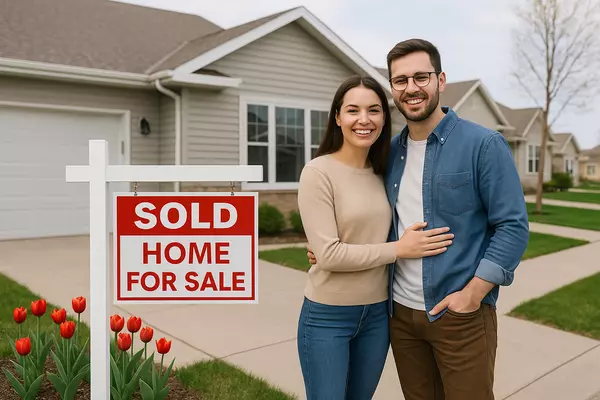


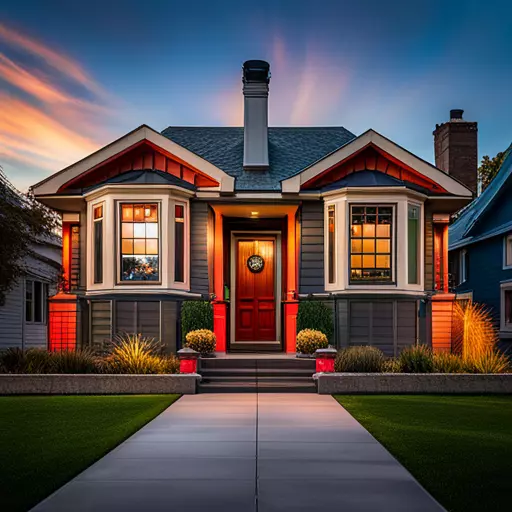

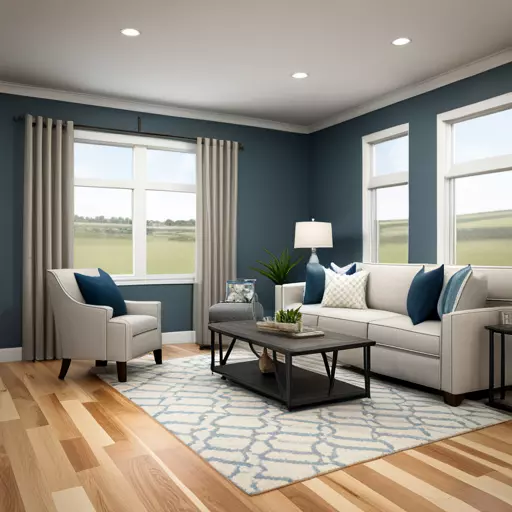
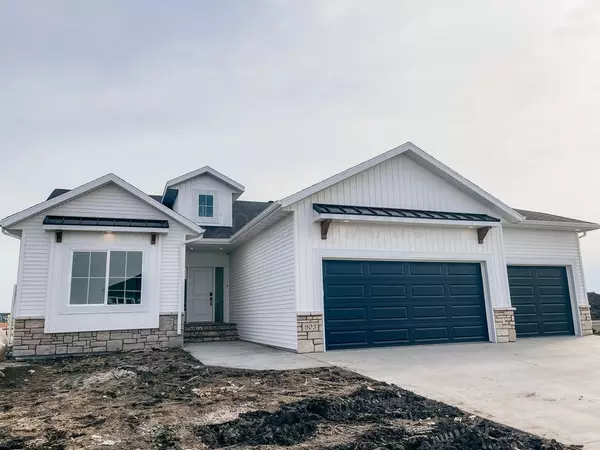
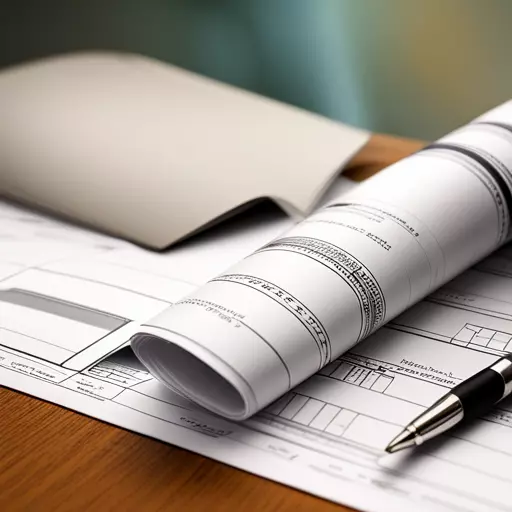

"My job is to find and attract mastery-based agents to the office, protect the culture, and make sure everyone is happy! "
